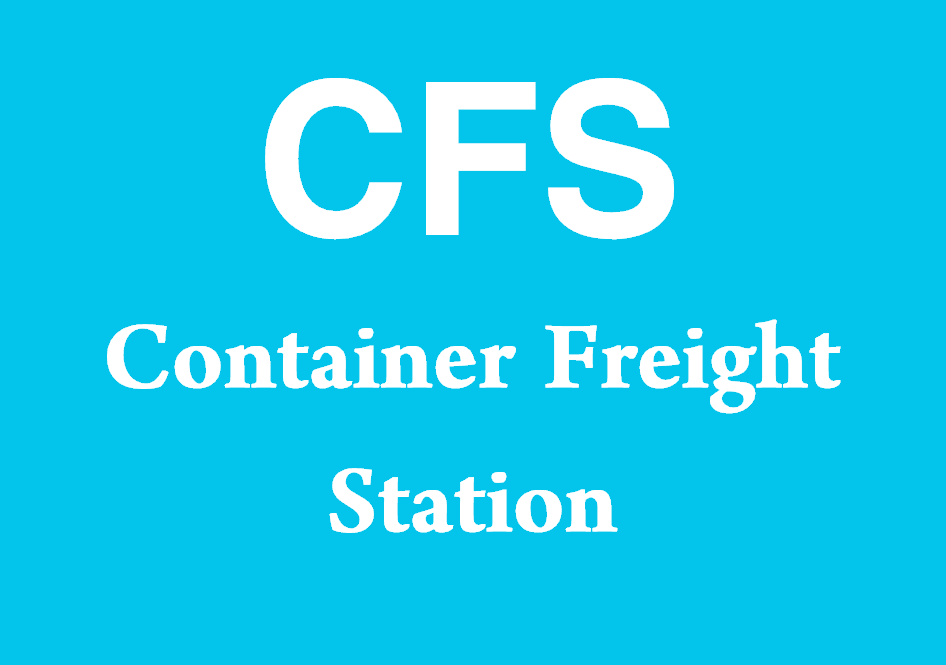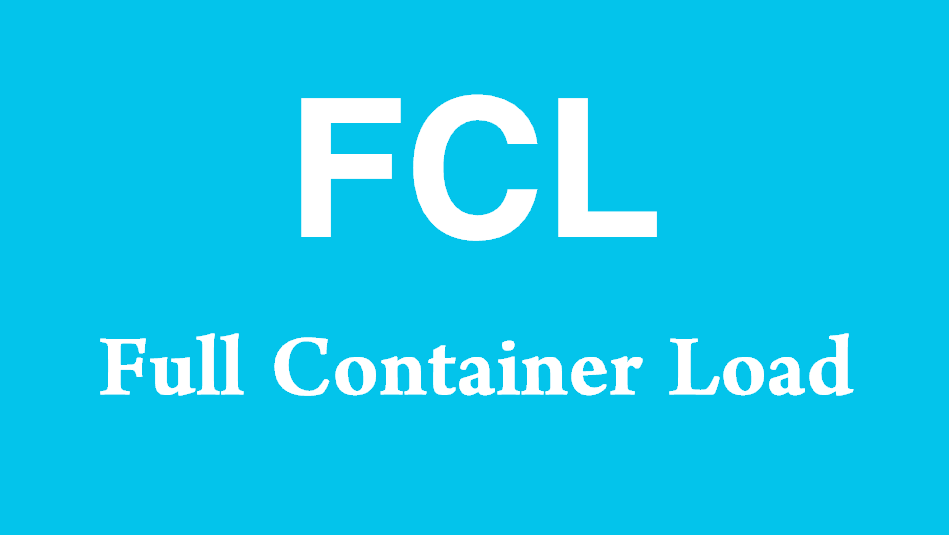What Does CFS Stand For?
CFS stands for “Container Freight Station.” It refers to a facility where goods are consolidated, deconsolidated, and temporarily stored during the shipping process. Container Freight Stations play a crucial role in the logistics and supply chain management of international trade, facilitating the efficient movement of cargo between various modes of transportation. Understanding the functions and operations of CFS facilities is essential for importers, exporters, freight forwarders, and other stakeholders involved in global trade to ensure smooth and timely shipments of goods.

Comprehensive Explanation of Container Freight Station (CFS)
Introduction to CFS
A Container Freight Station (CFS) is a designated facility used for handling and consolidating cargo shipments in containers. It serves as an intermediate point between the shipper, consignee, and various modes of transportation, such as ocean vessels, trucks, and railroads. CFS facilities play a vital role in the logistics chain by providing storage, consolidation, deconsolidation, and other value-added services to facilitate the movement of goods in international trade.
Functions of a CFS
- Cargo Consolidation: One of the primary functions of a CFS is to consolidate multiple shipments from different shippers into full container loads (FCL) or less than container loads (LCL). This process helps optimize container space and reduces transportation costs for shippers.
- Deconsolidation: Upon arrival at the CFS, containers are deconsolidated to separate individual shipments for distribution to their respective consignees. This allows for efficient handling and delivery of goods to their final destinations.
- Temporary Storage: CFS facilities provide temporary storage for cargo awaiting further transportation or customs clearance. Goods stored at the CFS are typically held in bonded areas to facilitate customs procedures and ensure compliance with regulatory requirements.
- Cargo Inspection and Documentation: CFS operators may perform inspection and documentation services to verify the contents of shipments, ensure compliance with import/export regulations, and prepare necessary paperwork for customs clearance.
- Value-Added Services: Some CFS facilities offer value-added services such as labeling, repackaging, palletizing, and quality control inspections to meet specific customer requirements and enhance the efficiency of cargo handling operations.
Operations at a CFS
- Receiving and Unloading: Incoming containers are received at the CFS facility, and the cargo is unloaded using cranes, forklifts, or other handling equipment. Each shipment is carefully inspected for damages and discrepancies upon arrival.
- Storage and Inventory Management: Goods are stored in designated areas within the CFS facility based on factors such as size, weight, and storage requirements. Inventory management systems are utilized to track the movement and location of cargo within the facility.
- Consolidation and Deconsolidation: Cargo destined for the same location is consolidated into containers for outbound shipments, while incoming containers are deconsolidated to separate individual shipments for distribution.
- Customs Clearance: CFS operators coordinate with customs authorities to facilitate the clearance of imported goods. Necessary documentation, such as customs declarations, invoices, and permits, is prepared and submitted for processing.
- Loading and Dispatch: Once customs clearance is obtained, outbound shipments are loaded onto trucks, railcars, or vessels for transportation to their final destinations. CFS staff ensure that all cargo is properly secured and labeled for transit.
Benefits of Using a CFS
- Efficient Cargo Handling: CFS facilities streamline the handling and processing of cargo, reducing transit times and minimizing the risk of delays associated with manual labor and paperwork.
- Cost Savings: By consolidating shipments and providing value-added services, CFS operators help shippers optimize their logistics operations and reduce transportation costs.
- Customs Compliance: CFS facilities assist importers and exporters in complying with customs regulations and documentation requirements, ensuring smooth clearance of goods through customs checkpoints.
- Flexible Storage Options: CFS facilities offer flexible storage solutions to accommodate varying cargo volumes and storage durations, allowing businesses to adapt to changing market demands.
Notes to Importers
- Selection of CFS: Importers should carefully evaluate CFS options based on factors such as location, facilities, services offered, and reputation. It is essential to choose a reliable and reputable CFS operator to ensure the timely and secure handling of cargo.
- Documentation Requirements: Importers must provide accurate and complete documentation to the CFS operator for customs clearance and cargo handling purposes. This includes bills of lading, commercial invoices, packing lists, and any other required documents.
- Cargo Insurance: Importers should consider obtaining cargo insurance to protect against loss or damage during transit and while in storage at the CFS facility. Insurance coverage can mitigate financial risks associated with unforeseen events or accidents.
- Communication with CFS Operator: Importers should maintain open communication with the CFS operator to convey specific requirements, address any concerns or issues, and ensure that cargo handling operations proceed smoothly. Regular updates and feedback can help optimize logistics processes and improve efficiency.
Sample Sentences and Their Meanings
- The importer arranged for cargo to be transported to the CFS for consolidation into full container loads before being shipped to the final destination: In this sentence, the importer organizes the transportation of goods to the CFS facility, where they will be consolidated into full container loads for onward shipment.
- The CFS operator provided value-added services such as labeling and repackaging to meet the importer’s specific requirements: Here, the CFS operator offers additional services beyond basic cargo handling, such as labeling and repackaging, to fulfill the importer’s customization needs.
- Upon arrival at the CFS, the goods underwent customs inspection and documentation procedures before being released for further transportation: This example illustrates the standard process of customs clearance and documentation at the CFS facility before the goods are released for onward transportation.
- The exporter opted to use a CFS near the port for efficient cargo handling and streamlined logistics operations: In this sentence, the exporter chooses a CFS facility located near the port to optimize cargo handling and logistics processes, minimizing transit times and costs.
- The CFS facility maintained a secure and bonded area for storing imported goods awaiting customs clearance: Here, the CFS facility ensures the security and integrity of imported goods by storing them in a bonded area designated for customs clearance purposes.
Other Meanings of CFS
| Acronym | Full Form | Description |
|---|---|---|
| CFS | Center for Food Safety | An organization or agency dedicated to promoting food safety and protecting public health through research, education, and regulatory initiatives. |
| CFS | Combat Feeding System | A military system or program designed to provide nourishment and sustenance to troops in combat or field operations, ensuring optimal nutrition and performance. |
| CFS | Center for Strategic and International Studies | A think tank or research institution focused on analyzing and providing policy recommendations on global security, economic, and geopolitical issues. |
| CFS | Child and Family Services | Social services or support programs provided by government agencies or nonprofit organizations to assist children and families in need of assistance or protection. |
| CFS | Certified Fund Specialist | A professional designation for individuals who specialize in mutual funds and investment products, demonstrating expertise in fund selection and portfolio management. |
| CFS | Center for Financial Studies | An academic or research institution dedicated to studying various aspects of finance, banking, and financial markets, contributing to advancements in financial knowledge and practices. |
| CFS | Chronic Fatigue Syndrome | A medical condition characterized by persistent fatigue, impaired cognitive function, and other symptoms, often affecting daily functioning and quality of life. |
| CFS | Container Freight Station | As discussed earlier, a facility used for handling and consolidating cargo shipments in containers, facilitating the movement of goods in international trade. |
| CFS | Cargo Freight Station | A facility or terminal where cargo shipments are processed, sorted, and loaded onto vehicles or vessels for transportation to their destinations. |
| CFS | Common File System | A computer file system or storage architecture that enables multiple users or applications to access and manage files and data stored on a shared storage device. |






